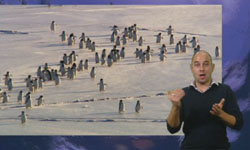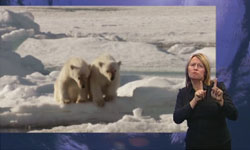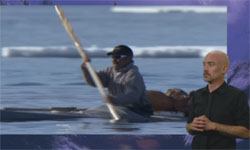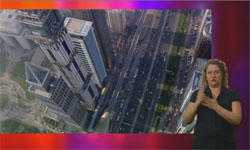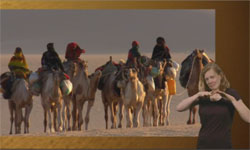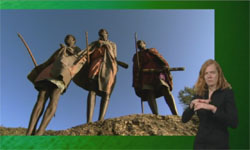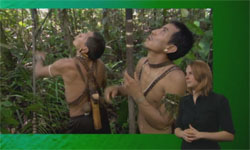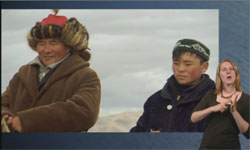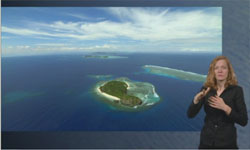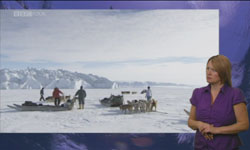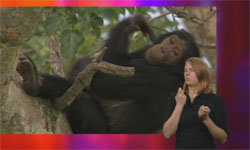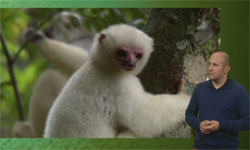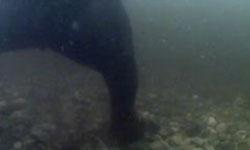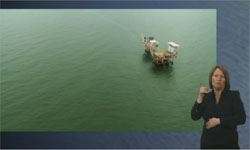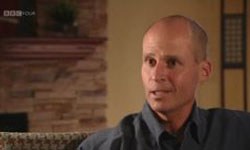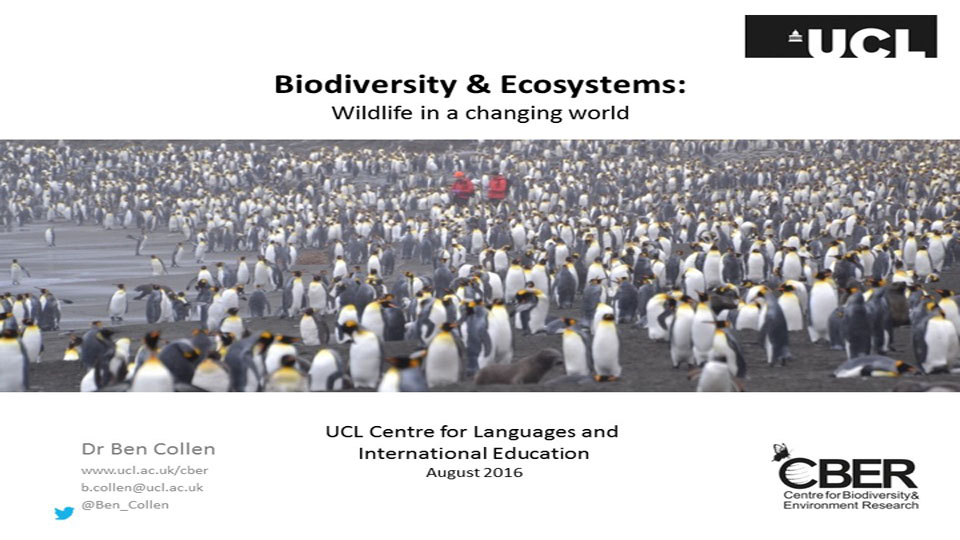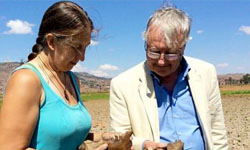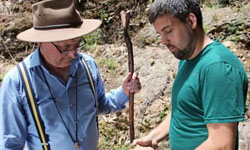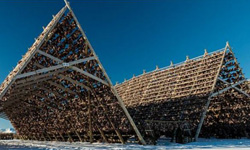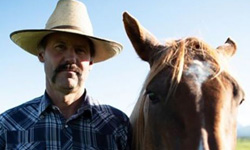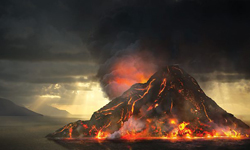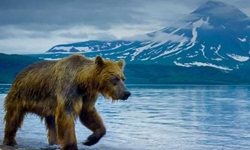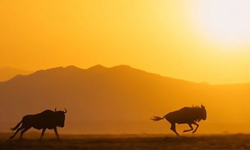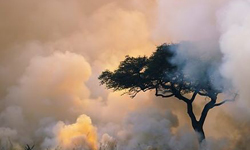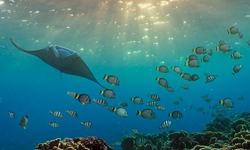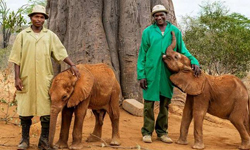Select one or more of these popular tags:
Spring arrives in the polar regions, and the sun appears after an absence of five months; warmth and life return to these magical ice worlds - the greatest seasonal transformation on our planet is underway.
- British-Sign-Language
- Natural World
- No subtitles
- 60
Spring arrives in the polar regions, and the sun appears after an absence of five months; warmth and life return to these magical ice worlds - the greatest seasonal transformation on our planet is underway.
Polar animals race to rear their young during times of plenty under the midnight sun.
- British-Sign-Language
- Natural World
- No subtitles
- 60
Polar animals race to rear their young during times of plenty under the midnight sun.
The Arctic is the harshest environment on Earth: little food grows, it's dark for months on end, and temperatures stay well below freezing for much of the year. Yet four million people manage to survive here.
- British-Sign-Language
- British-Sign-Language
- Natural World
- BSL subtitles
- 60
The Arctic is the harshest environment on Earth: little food grows, it's dark for months on end, and temperatures stay well below freezing for much of the year. Yet four million people manage to survive here.
A look at the one environment that's been made by us for us - the city. Over half of the world's population now lives in the urban jungle. The city is built to keep untamed nature out - but nature can't be pushed away. From bed bugs sucking our blood at night to rats in our restaurants, many animals have adapted to a life with us.
- British-Sign-Language
- Natural World
- BSL subtitles
- 60
A look at the one environment that's been made by us for us - the city. Over half of the world's population now lives in the urban jungle. The city is built to keep untamed nature out - but nature can't be pushed away. From bed bugs sucking our blood at night to rats in our restaurants, many animals have adapted to a life with us.
In the second episode of Human Planet, we discover how the eternal quest for water brings huge challenges - and ingenious solutions - in the driest places on Earth.
- British-Sign-Language
- Natural World
- BSL subtitles
- 60
In the second episode of Human Planet, we discover how the eternal quest for water brings huge challenges - and ingenious solutions - in the driest places on Earth.
Grasslands feed the world. Over thousands of years, we humans have learned to grow grains on the grasslands and domesticate the creatures that live there. Our success has propelled our population to almost seven billion people.
- British-Sign-Language
- Natural World
- BSL subtitles
- 60
Grasslands feed the world. Over thousands of years, we humans have learned to grow grains on the grasslands and domesticate the creatures that live there. Our success has propelled our population to almost seven billion people.
The rainforest is home to more species of plants and animals than any other habitat on the planet. But for humans, life there is not as easy as it looks. Life in the trees requires great skill, ingenuity and sheer bravery.
- British-Sign-Language
- Natural World
- BSL subtitles
- 60
The rainforest is home to more species of plants and animals than any other habitat on the planet. But for humans, life there is not as easy as it looks. Life in the trees requires great skill, ingenuity and sheer bravery.
From lush cloud forests to bare summits that take your breath away, the higher you climb the tougher life gets on a mountain. Human Planet explores the extraordinary ways in which people survive at extreme altitudes where nature becomes utterly unforgiving.
- British-Sign-Language
- Natural World
- BSL subtitles
- 60
From lush cloud forests to bare summits that take your breath away, the higher you climb the tougher life gets on a mountain. Human Planet explores the extraordinary ways in which people survive at extreme altitudes where nature becomes utterly unforgiving.
As an air-breathing animal, the human is not built to survive in water. But people have found ways to live an almost aquatic life so they can exploit the sea's riches. From a 'shark-whisperer' in the Pacific to Brazilian fishermen collaborating with dolphins to catch mullet, this journey into the blue reveals astonishing tales of ingenuity and bravery.
- British-Sign-Language
- Natural World
- BSL subtitles
- 60
As an air-breathing animal, the human is not built to survive in water. But people have found ways to live an almost aquatic life so they can exploit the sea's riches. From a 'shark-whisperer' in the Pacific to Brazilian fishermen collaborating with dolphins to catch mullet, this journey into the blue reveals astonishing tales of ingenuity and bravery.
Ragnar Axelsson, known as Rax, is a photograher for Iceland's largest newspaper. This documentary follows him on his life's mission, to capture the human faces of climate change by photographing the vanishing lifestyles of the people of the north.
- British-Sign-Language
- Natural World
- BSL subtitles
- 60
Ragnar Axelsson, known as Rax, is a photograher for Iceland's largest newspaper. This documentary follows him on his life's mission, to capture the human faces of climate change by photographing the vanishing lifestyles of the people of the north.
In Africa, a family of chimps trapped in a lost world face a daily ... In a twist of fate, the last babies born into the gorge family have all been males. …
- British-Sign-Language
- British-Sign-Language
- Natural World
- BSL subtitles
- 60
In Africa, a family of chimps trapped in a lost world face a daily ... In a twist of fate, the last babies born into the gorge family have all been males. …
Pure white lemurs called silky sifaka live in the remote rainforests of Madagascar. They are one of the rarest animals in the world.
- British-Sign-Language
- British-Sign-Language
- Natural World
- No subtitles
- 60
Pure white lemurs called silky sifaka live in the remote rainforests of Madagascar. They are one of the rarest animals in the world.
Every year grizzly bear families in North America depend for their survival on a spectacular natural event: the return of hundreds of millions of salmon from the Pacific Ocean to the mountain streams where they were born. The salmon travel thousands of miles to spawn and then die.
- British-Sign-Language
- Natural World
- No subtitles
- 60
Every year grizzly bear families in North America depend for their survival on a spectacular natural event: the return of hundreds of millions of salmon from the Pacific Ocean to the mountain streams where they were born. The salmon travel thousands of miles to spawn and then die.
Stephen Fry loves Louisiana. Four months after the BP oil spill, dubbed the worst ecological disaster in the history of America, Fry returns to the Deep South together with zoologist Mark Carwardine, to see what the impact has been on the people, the vast wetlands and the species that live there.
- British-Sign-Language
- Natural World
- BSL subtitles
- 60
Stephen Fry loves Louisiana. Four months after the BP oil spill, dubbed the worst ecological disaster in the history of America, Fry returns to the Deep South together with zoologist Mark Carwardine, to see what the impact has been on the people, the vast wetlands and the species that live there.
How Yellowstone's Indian tribes were displaced to create this great American wilderness.
- British-Sign-Language
- Natural World
- BSL subtitles
- 60
How Yellowstone's Indian tribes were displaced to create this great American wilderness.
-
Biodiversity and Ecosystems: Wildlife in a Changing World
-
Dr Ben Collen , 2016
Pre-sessional lecture August 2016
- Lectures
- No subtitles
- 43
Pre-sessional lecture August 2016
-
Natural Disasters - Acts of God? (with Worksheet)
-
Dr Anne Varley
TO BE REMOVED ?
- Lectures
- Natural World
- No subtitles
- 50
TO BE REMOVED ?
-
Planet Earth Under Threat
-
Gabrielle Walker
The final part of the series exploring how climate change is affecting the natural world.
The final part of the series exploring how climate change is affecting the natural world.
-
Life In The Freezer
-
Alistair Fothergill , BBC Books , 1993
"Life in the Freezer" is an exciting new natural history of the Antarctic. Less celebrated than its northern equivalent, it boasts an equal blend of extraordinary wildlife and stunning scenery. In this book, Alastair Fothergill traces the region's seasonal cycle and explains how marine, mammal, bird and plant life survive in one of the harshest climates on earth
- 0-563-36431-9 2557
- Special Interest
- Natural World
- 1 copies
- C1 C2
"Life in the Freezer" is an exciting new natural history of the Antarctic. Less celebrated than its northern equivalent, it boasts an equal blend of extraordinary wildlife and stunning scenery. In this book, Alastair Fothergill traces the region's seasonal cycle and explains how marine, mammal, bird and plant life survive in one of the harshest climates on earth
In the second episode, Fortey travels to the rainforests of Madagascar - an ancient island that has spawned some of the most extraordinary groups of plants and animals anywhere in the world.
- TV-Recordings
- English subtitles
- 60
In the second episode, Fortey travels to the rainforests of Madagascar - an ancient island that has spawned some of the most extraordinary groups of plants and animals anywhere in the world.
In the final episode, Richard travels to Madeira to examine what happens to a volcanic island as it nears the end of its life-cycle and starts sinking back into the sea.
- TV-Recordings
- English subtitles
- 60
In the final episode, Richard travels to Madeira to examine what happens to a volcanic island as it nears the end of its life-cycle and starts sinking back into the sea.
Documentary series about nature's resilience. How ecosystems devastated by human impact can be revived and become sustainable for future generations.
- TV-Recordings
- English subtitles
- 53
Documentary series about nature's resilience. How ecosystems devastated by human impact can be revived and become sustainable for future generations.
Even the smallest species can impact an ecosystem. And when a species finds itself in the wrong place, it can have a devastating effect.
- TV-Recordings
- English subtitles
- 51
Even the smallest species can impact an ecosystem. And when a species finds itself in the wrong place, it can have a devastating effect.
Presenter Hannah Fry reveals how much our planet can change in just a single day and how these daily changes are essential to our existence.
- TV-Recordings
- English subtitles
- 58
Presenter Hannah Fry reveals how much our planet can change in just a single day and how these daily changes are essential to our existence.
-
A Perfect Planet - Series 1 Episode 1: Volcano
-
David Attenborough
A look at how without volcanoes, there would be no life on Earth. Although destructive, magma from the planet’s molten core builds land, and mineral-rich ash from eruptions fertilises the surface
- TV-Recordings
- English subtitles
- 59
A look at how without volcanoes, there would be no life on Earth. Although destructive, magma from the planet’s molten core builds land, and mineral-rich ash from eruptions fertilises the surface
-
A Perfect Planet - Series 1 Episode 2: The Sun
-
David Attenborough
From the frozen poles to the searing deserts, this episode shows how animals have come up with strategies to survive the uneven amounts of sunlight that fall on our planet.
- TV-Recordings
- English subtitles
- 59
From the frozen poles to the searing deserts, this episode shows how animals have come up with strategies to survive the uneven amounts of sunlight that fall on our planet.
-
A Perfect Planet - Series 1 Episode 3: Weather
-
David Attenborough
Weather controls the distribution of freshwater on Earth, which in turn shapes the lives of animals in diverse habitats around the globe.
- TV-Recordings
- English subtitles
- 59
Weather controls the distribution of freshwater on Earth, which in turn shapes the lives of animals in diverse habitats around the globe.
-
A Perfect Planet - Series 1 Episode 4: Oceans
-
David Attenborough
How Earth's five oceans connect to form the largest ecosystem on the planet, and how its network of currents supports the health of the seas and marine wildlife.
- TV-Recordings
- English subtitles
- 59
How Earth's five oceans connect to form the largest ecosystem on the planet, and how its network of currents supports the health of the seas and marine wildlife.
-
A Perfect Planet - Series 1 Episode 5: Humans
-
David Attenborough
Humans are changing our planet so rapidly, it’s affecting earth’s life support systems: our weather, our oceans and the living world.
- TV-Recordings
- English subtitles
- 59
Humans are changing our planet so rapidly, it’s affecting earth’s life support systems: our weather, our oceans and the living world.
-
A Perfect Planet Series 1
-
David Attenborough
Our planet is one in a billion. How incredible, awe-inspiring life is driven by its natural forces - and how we can ensure humans become a force for good. With David Attenborough.
- TV-Recordings
- English subtitles
- 300
Our planet is one in a billion. How incredible, awe-inspiring life is driven by its natural forces - and how we can ensure humans become a force for good. With David Attenborough.

